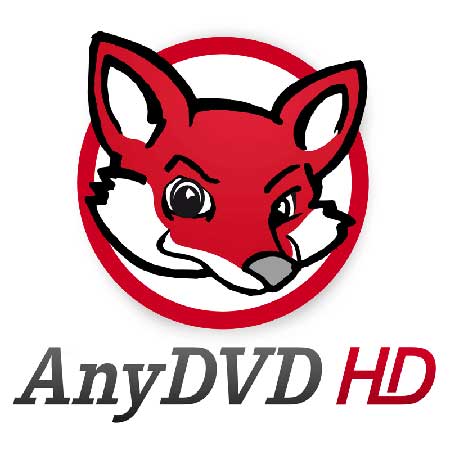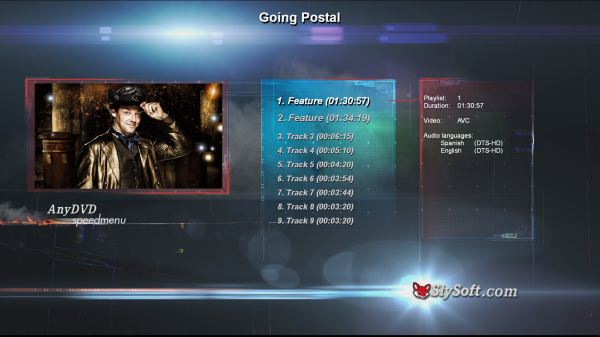Cinavia DRM: How I Learned to Stop Worrying and Love Blu-ray’s Self-Destruction
by Ganesh T S on March 21, 2012 11:00 AM EST- Posted in
- Home Theater
- Blu-Ray
- DRM
- Cinavia
Many consumers tend to prefer instantly accessible versions of movies (such as those on Netflix / Vudu / iTunes / local copies / etc.) compared to Blu-rays because of the following reasons:
- There is no need to sit through FBI warnings
- There is no need to sit through unskippable trailers of upcoming movies
- There is no risk of scratched optical media which might lead to errors during playback
- There is usually no regional restriction to worry about
However, Blu-rays aren't going away any time soon even for consumers who have lot of bandwidth to spare. The main reason is the audio and video quality. Vudu comes close to matching Blu-ray quality with their 9 Mbps HDX stream and Dolby Digital Plus soundtracks, but the Blu-ray versions have a much higher bitrate ceiling and support for lossless audio, making them capable of delivering quality which is not going to be matched by streaming services any time in the near future.
Is it possible to combine the great quality of Blu-rays with instant and reliable access? The answer is a cautious affirmative. According to the current U.S. laws, it is illegal to circumvent copy protection on DVDs and Blu-rays. Unfortunately, the instant / reliable access part is not possible without stripping the content protection. That said, it is difficult to imagine a situation where the fact that a consumer has stripped the DRM from a purchased disc is known to the outside world (as long as it is not being distributed in a public manner). Given this situation, it is highly unlikely that backing up your discs is going to earn you a visit from the FBI, but AnandTech is not a site for legal advice. So, if you decide to act on the tips below, note that you are on your own.
There are three different types of Blu-ray backups which don't involve re-encoding the audio and video tracks, and you should choose one of the formats that meets your requirements:
- ISO: An ISO file is a disc image that retains almost all the contents of the disc in a sector-by-sector copy format. It also retains the file system of the disc. Most tools that back up to this format strip out the AACS folder.
- Folder structure: This is similar to an ISO backup in the sense that all the contents of the disc are retained. However, the file system on the disc is not carried over. This means that some file system level tricks to save upon space (such as the 3D video SSIF folders in MVC encoded Blu-rays) can't be retained.
- MKV: This is undoubtedly the most popular format for storing HD movies. In this backup mode, a playlist title is chosen (a collection of M2TS files on the disc in a particular sequence). The M2TS files are concatenated in the right order and the unnecessary audio and video tracks are taken out as dictated by the user. The tracks are then remuxed into an MKV container.
There are a number of tools out there that help strip the DRM off Blu-rays and DVDs. The ones with the best track record for support and updates are AnyDVD HD from SlySoft, MakeMKV, and DVDFab. I have used all three tools, and my recommendations for 'lossless' Blu-ray backups lie with AnyDVD HD and MakeMKV. I do find DVDFab to be a more all-round solution, thanks to inbuilt re-encoding capabilities, but this can always be done offline (after the ripping process) using better tools like the x264-based Handbrake and the like. However, ISOs created with DVDFab have sometimes failed to play back properly on multiple media streamers. AnyDVD HD's ISOs have had a perfect track record in my experience.
AnyDVD HD
AnyDVD is a product from SlySoft, aimed at real time (on-the-fly) DRM stripping. It runs on a Windows PC and remains active in the background. Any access to the optical drive automatically sees an unprotected disc. This means that playback tools don't need to see an HDCP-capable display while playing back the content. Also, files can be copied from the drive without any issues.

SlySoft, based in Antigua, has been around since 2002. In addition to AnyDVD, they also provide a line of other software tools and drivers for multimedia applications and hardware. The other popular tool from SlySoft that I frequently recommend is the freeware Virtual CloneDrive that can be used to provide a number of virtual optical drives on Windows. Disc images can be mounted on these drives and applications (software Blu-ray players, say) can access them as if they were real optical discs.
Initially, AnyDVD was used to circumvent copy protection on DVDs. In February 2007, AnyDVD was updated with support for HD DVD and AACS. In March 2007, the first version of AnyDVD HD with full Blu-ray support was released. However, the Blu-ray industry came up with BD+ in late 2007. AnyDVD HD started handling BD+ protected discs in March 2008. Starting in December 2009, some Blu-ray titles started coming with Sony Screen Pass, but this was successfully cracked by SlySoft within a few hours. We discussed details of the Blu-ray Screen Pass DRM in an earlier section. ARccOS, used in DVDs has also been re-branded as Screen Pass for DVDs. However, this has been handled by AnyDVD for quite some time. BD+ and Screen Pass are designed to evolve, but SlySoft has always been successful in being able to overcome and adapt to these copy protection mechanisms.
While AnyDVD HD's on-the-fly decryption can be used during playback of the disc, the most common usage scenario is to tie it in along with the 'Rip to disk image' functionality. The MyCE forum post here shows the steps necessary to create an ISO image of a Blu-ray disc.
The usage of AnyDVD HD in the USA is not legal for reasons mentioned earlier in this section. Antigua has remained a safe haven for SlySoft till now. However, the AACS-LA has been putting a lot of pressure on SlySoft. Recently, they even managed to sue SlySoft in Antigua. While SlySoft was not ready to comment about this particular case, they went to great lengths to stress the fact that their mission was not to circumvent copy protection for piracy purposes. Instead, they just want to make sure that their customers can watch the movies they paid for without any annoying restrictions. Given the Blu-ray industry's utter disregard for the end consumer, we can only root silently for SlySoft in this case.
MakeMKV
MakeMKV is a product from GuinpinSoft, aimed at backing up Blu-rays and DVDs into either an MKV or folder structure. It is a comparatively recent competitor to SlySoft's products, but I prefer to view it as being more of a complement to SlySoft's product suite. Mike Chen, the developer of MakeMKV, clearly states that his aim is to enable people to move Blu-ray movies from patent-encumbered formats (such as BD-J / HDMV / etc.) to something truly open (MKV). The first version of MakeMKV was released in early 2009.

Damian at MediaSmartServer has a couple of excellent writeups documenting the usage of MakeMKV for movie discs and TV box sets. In addition to being able to save MKVs and folder structures of Blu-rays and DVDs, MakeMKV can also be used for real-time DRM stripping and streaming over uPnP. The icing on the cake is multi-OS support. MakeMKV even has a version for Linux!
The protection handling mechanisms are updated as and when required. Mike Chen pointed out that the longest it took to update MakeMKV for a new protection scheme variant (AACS / BD+ / bus-encryption) was less than 2 weeks. MakeMKV started handling BD+ on October 7 2009. New BD+ protection schemes normally take a few days to counter. As of today, MakeMKV handles AACS v30 and the latest BD+ update from Irdeto.
From a consumer perspective, it is good to have multiple teams working separately to handle DRM circumvention. Competition is also good for the consumer, pushing innovation and ultimately the vendors too. For example, SlySoft came up with a Speedmenu feature recently. This effectively provided a BD-Lite feature for playback on the PC.
By getting rid of the unwanted BD-Live features and providing users with a no-nonsense menu, SlySoft is raising the bar for DRM stripping tools. MakeMKV has loads of interesting features lined up over the next few quarters, including audio and subtitle format transcoding (LPCM->FLAC, DTS-HD->LPCM, PGS->VOBSUB etc.)
Given the above options, what is the best way to backup your Blu-ray collection? If you don't have any space constraints, I strongly suggest backing up in the ISO format. This will enable you to take advantage of future improvements in MakeMKV (the MKV format is the best if you want a 'lossless' backup while also saving on space). MakeMKV still doesn't handle stuff such as multi-angle and PiP streams properly. An ISO backup gives you a copy of the disc on a hard drive and can always be processed by MakeMKV later. If you don't want to spend money on two tools and prefer the MKV format, a folder backup with MakeMKV is one possible alternative, but it is not really space-efficient for MVC encoded 3D Blu-rays.
In order to give readers an idea of the advantages of using Blu-ray backups, we took a Blu-ray disc of the movie 'Waltz with Bashir' and backed it up to ISO, folder structure, and MKV formats. We are giving some leeway to the studios here because the movie, being one belonging to the arthouse category, was thankfully devoid of unskippable trailers. The tables below show the time taken to reach various points in the movie experience using a software player (PowerDVD 12 running on ASRock's Vision3D 252B) as well as a Blu-ray disc player (Netgear NTV550 using an Asus 8x BC-08B1ST over USB 2.0).
| Waltz with Bashir - Original Blu-ray Load Times (mm:ss) | |||
| PowerDVD 12 (Autostart) | PowerDVD 12 (Already Running) | NeoTV 550 (Autostart) | |
| Insert to First Video | 00:47 | 00:20 | 00:54 |
| Main Menu | 01:41 | 01:04 | 01:38 |
| Start of FBI Warnings | 01:51 | 01:17 | 01:47 |
| Start of Actual Movie | 02:19 | 01:46 | 02:18 |
| Waltz with Bashir - AnyDVD HD ISO Load Times (mm:ss) | |||
| PowerDVD 12 (Autostart) | PowerDVD 12 (Already Running) | NeoTV 550 (Autostart) | |
| Insert to First Video | 00:20 | 00:16 | 00:26 |
| Main Menu | 00:55 | 00:52 | 01:04 |
| Start of FBI Warnings | 01:07 | 01:02 | 01:15 |
| Start of Actual Movie | 01:37 | 01:32 | 01:46 |
| Waltz with Bashir - MakeMKV Folder Structure Load Times (mm:ss) | |||
| PowerDVD 12 (Autostart) | PowerDVD 12 (Already Running) | NeoTV 550 (Autostart) | |
| Insert to First Video | NA | 00:16 | 00:29 |
| Main Menu | NA | 00:51 | 01:00 |
| Start of FBI Warnings | NA | 01:01 | 01:09 |
| Start of Actual Movie | NA | 01:31 | 01:40 |
| Waltz with Bashir - MakeMKV MKV Load Times (mm:ss) | |||
| PowerDVD 12 (Autostart) | PowerDVD 12 (Already Running) | NeoTV 550 (Autostart) | |
| Insert to First Video | NA | NA | NA |
| Main Menu | NA | NA | NA |
| Start of FBI Warnings | NA | NA | NA |
| Start of Actual Movie | NA | 00:04 | 00:05 |
As evident from the load times in the table above, it takes more than 2 minutes to start the main movie with the original disc, but takes less than 5 seconds with an MKV version. Purchasers of original Blu-rays usually view the movie multiple times, and it is really incomprehensible why the studios and the law don't allow them to start the movie on the disc immediately.











121 Comments
View All Comments
colonelciller - Wednesday, March 28, 2012 - link
wow that's lame... the industry is totally out of touch with reality aren't theyGuspaz - Wednesday, March 21, 2012 - link
But they make it impossible for me.Say I want to buy a movie or TV series. If I buy it on BluRay, I can't watch it on my iPad. If I buy it on iTunes, I can't watch it on my preferred PC player or TV (not without buying an Apple TV), and it costs twice as much as the bluray.
Meanwhile, if I were to download a torrent of the movie or TV episode, it plays on my TV, it plays on my computer, it is easily transcodable or remuxable to my iPad, and there is no DRM hassle whatsoever.
About the only bright spot in all this is Netflix, where the DRM simply isn't a problem by virtue of being completely transparent, and having clients for every conceivable device I'd want to watch it on. The problem is that I can't get all my content through Netflix, as much as I'd like to.
The music industry FINALLY got a clue, and at this point they begrudgingly sell their content DRM-free at reasonable prices. The current road the television and movie industries are on ends in a cliff.
colonelciller - Wednesday, March 28, 2012 - link
I agree with the music industry getting a clue finally with the DRM-free... but as for reasonable prices I'd have to disagree wholehartedly.IF... they were selling songs for about 90 cents each for CD quality FLAC or Apple Lossless then ok... but for the compressed mp3 format then the only price I'D pay is about 2cents per song.
I didn't invest in a hi-fi stereo to play crappy mp3 files
arjuna1 - Wednesday, March 21, 2012 - link
Yet another department where pirates get better service than paying customers.Gotta love the entertainment industry.
mindbomb - Wednesday, March 21, 2012 - link
it actually seems alright from what's presented in this article.Are they encoding from a lossless master, or do they just simply use blurays?
ganeshts - Wednesday, March 21, 2012 - link
Quality wise, it is pretty good. However, it still comes bundled with all the Blu-ray issues.. You can rent and watch it on a device but it comes with issues such as a 24 or 48 hour watch window. If you buy it, the purchased copy which is downloaded can only be played on that particular device / still bundled with DRM.I will ping Vudu PR about the details of the encoding process they are using (after our AppleTV 3 review is up, because it has some relevant details I would like to point out to their PR).
deva - Wednesday, March 21, 2012 - link
I can't help but think that the use of fancy DRM features by content has to be an element of the following:Senior Exec: "WE NEED TO PROTECT OUR CONTENT, WHY AREN'T WE DOING MORE TO PROTECT OUR CONTENT!?"
Engineer: "Yes sir, right away sir. There is this lovely new DRM produced by 'company x' that will protect our content to a high level....."
Senior Exec: "Excellent work young engineer. You're in line for a promotion for such innovation and forward thinking."
I hope my point come through OK. In all industries, in my experience there tends to be a fair bit of 'management appeasement' which can lead to poor choices being seen as great ones.
Zoomer - Wednesday, March 21, 2012 - link
The engineers don't care; their product experience isn't really that impacted by all that crap. Which they bypass.colonelciller - Wednesday, March 28, 2012 - link
I'd bet you that the guys who make these systems never actually have to tolerate these systems when they are at home watching a movie from their own collectionarcher75 - Wednesday, March 21, 2012 - link
Streaming doesn't work for me. The quality is poor, even on FIOS and there is no HD audio. Luckily I have no bandwidth caps but most do.So once quality improves and HD audio is included i'm on board. Until then i'll happily stick with discs.